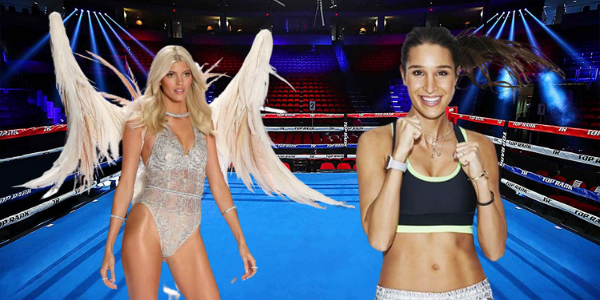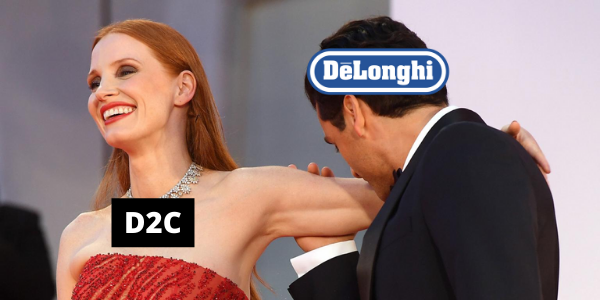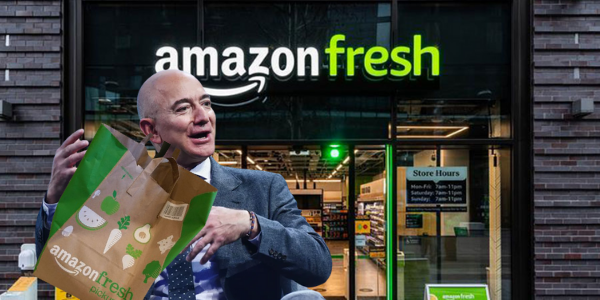Get smarter than your boss in 5 minutes with today's business news.
🏃 Sweat owner IFit is suing Victoria's Secret
☕️ De'Longhi opens world-first coffee lounge in Sydney
🥦 Amazon is taking on grocery stores
Happy Monday Flux fam!
Have you played our 1 minute savings quiz yet?! You've got until 7pm tonight to snake your way to the top of the leaderboard! Whoever wins gets a $50 UberEats voucher🏆
Here's everything you need to know today - in under 5 minutes.
🏃 Sweat owner IFit is suing Victoria's Secret
☕️ De'Longhi opens world-first coffee lounge in Sydney
🥦 Amazon is taking on grocery stores
A man of his word, Elon Musk, has just sold off $6.8 billion worth of Tesla stock after a Twitter poll told him to. Imagine the world if we all did what Twitter told us to do?

Background: Sweat is the Aussie fitness company that was founded by Adelaide fitness guru Kayla Itsines. The app (with the cult following) was launched in 2015...and in July this year, the company was bought by US fitness company iFit for a whopping $400 million.
What happened: Victoria's Secret are the US lingerie, apparel and beauty company known for their (now-cancelled) annual catwalk with the giant wings and diamond-encrusted bras.
What else: iFit are suing Victoria's Secret, claiming VS are using Sweat trademarks in connection with their exercise apparel. They also claim VS have been purposefully using a Kayla lookalike in their ads.
💡A trademark is a business' registered brand, and it's used to distinguish one business from another. It can be letters, numbers, words, phrases, logos...Ya get the gist.
💡 Registering a trademark gives a business the exclusive right to use that trademark within in a particular industry/class.
💡So while you can have, say, Domino's Shoes and Domino's Pizza (i.e. different industries so unlikely to cause confusion), it may be harder to prove that the Sweat fitness app isn't related to Sweat exercise clothing.

Background: De'Longhi are an Italian coffee manufacturer that were founded back in 1902. But this crew haven't sold directly to consumers in Australia....until now.
What happened: So far, this crew have operated using a business-to-business model (B2B). In other words, the products are sold in stores, like Myer, DJs and The Good Guys.
What else: Now, they've opened the world's first De'Longhi Coffee Lounge - a place where customers can try new coffee beans, learn how to make the perfect cuppa and then purchase products.
💡The direct-to-consumer (D2C) business model is where a company sells their products directly to consumers. Makes sense. This means they bypass third-party retailers, wholesalers...and any other middle person.
💡Over the last few years, the D2C model has become more popular. It's coincided with the shift to online shopping and the rise of social media.
💡Shopper behaviour has also changed. Now, 55% of consumers prefer to buy from brands directly, and a further 40% of shoppers reckon they'll continue to buy from a D2C brand in the next 5 years.

Background: Amazon have been plonking massive physical stores around the US for a few years now. They started with Amazon Go in January 2018, which also featured their 'Just Walk Out' tech.
What happened: This tech lets customers shop around the store...then leave the store without going to a cash register. Their Amazon account just gets charged for what they purchased. Srsly smart!
What else: Now, they've launched their biggest ever Amazon Fresh store, which is like a grocery shop. It's 3,250-square metres - aka the size of your average Woolies. And they've got regular supermarkets shaking.
💡This latest move is proof that Amazon are coming for grocery stores in a big way.
💡The signs are telling:
💡Amazon has a leg up, too. They previously purchased Whole Foods for US $13.7bn and now have over 500 stores across the US and UK. So it knows a thing or two about groceries.
Sign up for Flux and join 100,000 members of the Flux family